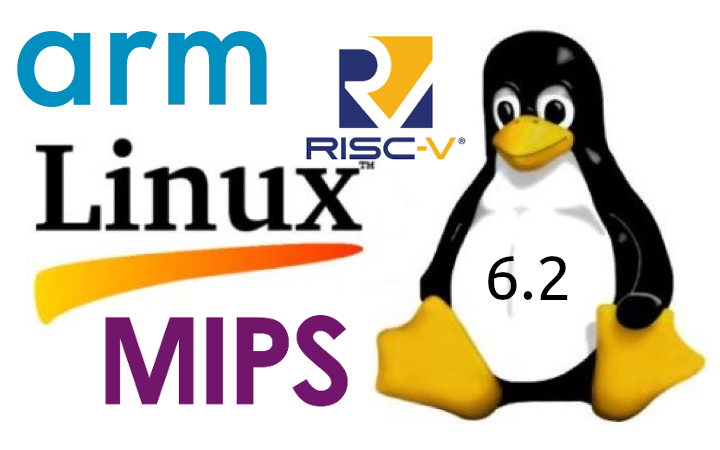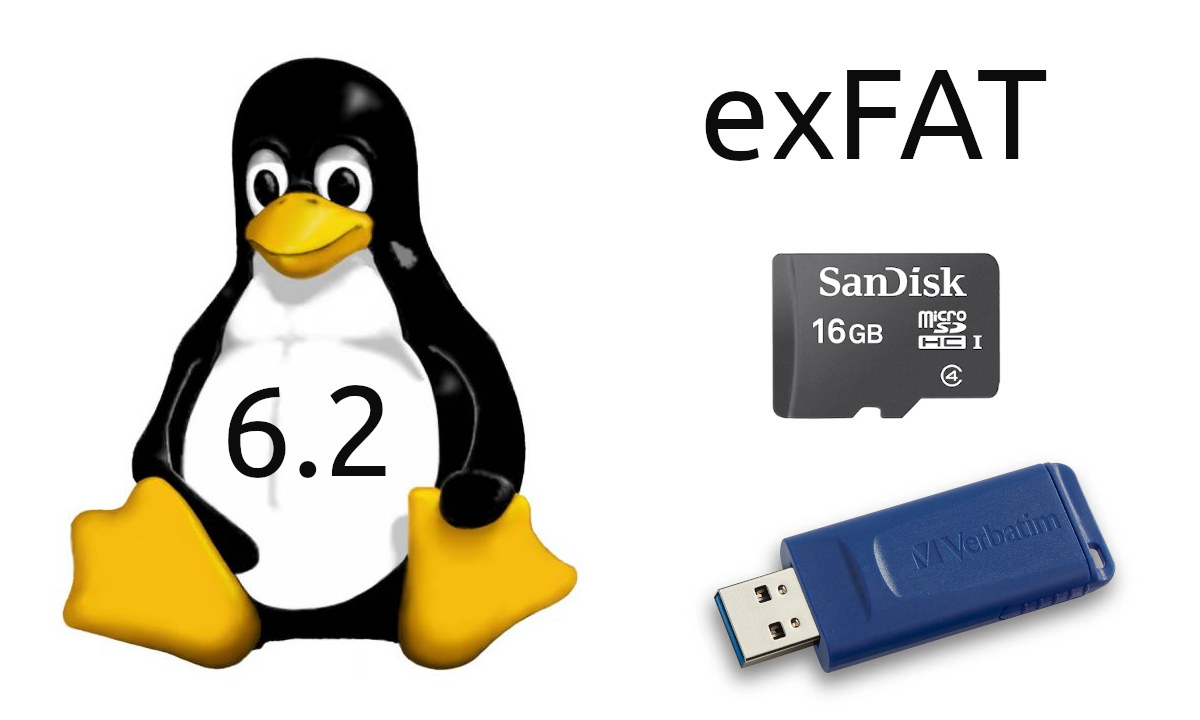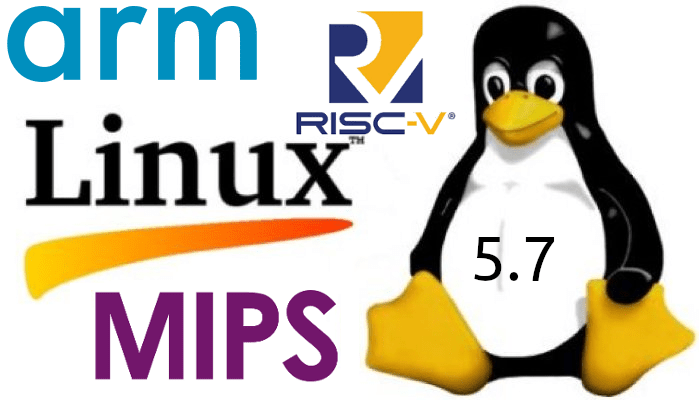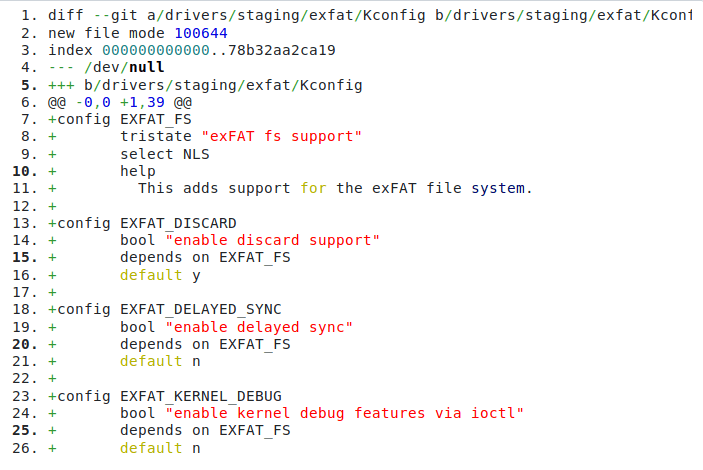Linux 6.2 has just been released with Linus Torvalds making the announcement on LKML as usual: So here we are, right on (the extended) schedule, with 6.2 out. Nothing unexpected happened last week, with just a random selection of small fixes spread all over, with nothing really standing out. The shortlog is tiny and appended below, you can scroll through it if you’re bored. Wed have a couple of small things that Thorsten was tracking on the regression side, but I wasn’t going to apply any last-minute patches that weren’t actively pushed by maintainers, so they will have to show up for stable. Nothing seemed even remotely worth trying to delay things for. And this obviously means that the 6.3 merge window will open tomorrow, and I already have 30+ pull requests queued up, which I really appreciate. I like how people have started to take the whole “ready for […]
Linux 6.2 exFAT update to improve performance when creating files and directories
The exFAT file system is about to get faster in Linux 6.2, at least when creating files and directories, with the performance boost especially noticeable on low-end processors. Microsoft released the exFAT specification and announced Linux support in August 2019, which was followed by a new exFAT implementation in Linux 5.7 (June 2020) from Samsung. But people are still working on improving exFAT Linux support, and Yuezhang Mo, an engineer at Sony, committed a patchset for Linux 6.2 that reduces repeated traversal of directory entries to boost the performance of exFAT: After traversing all directory entries, hint the empty directory entry no matter whether or not there are enough empty directory entries. After this commit, hint the empty directory entries like this: 1. Hint the deleted directory entries if enough; 2. Hint the deleted and unused directory entries which at the end of the cluster chain no matter whether enough […]
Debian 11 “BullsEye” released with Panfrost & Lima GPU drivers, exFAT support, driverless printing
Debian 11 “BullsEye” has been released with Panfrost & Lima open-source drivers for Arm GPUs, in-kernel exFAT file system, driverless printing, and many more updates, plus a 5-year support window. Debian’s release is significant as the Linux operating system serves as the base for Ubuntu and derivatives, Raspberry Pi OS, and together with Ubuntu, is one of the operating systems supported by Armbian which offers images for a range of Arm-based single board computers. Arm Mali GPU support in Debian 11 I remember a few years ago 3D graphics acceleration on Arm boards was news, as it was quite a challenge to get it working due to binary blobs. But Debian 11 now comes with Mesa 20.3 framework which includes Panfrost and Lima open-source Mali GPU drivers by default, as well as the Vulkan 1.0 conformant V3DV driver for Raspberry Pi 4. As noted in the documentation that means the […]
Linux 5.7 Released – Main Changes, Arm, MIPS and RISC-V Architectures
OK… I’m a bit late on that one. Linus Torvalds released Linux 5.7 last week: So we had a fairly calm last week, with nothing really screaming “let’s delay one more rc”. Knock wood – let’s hope we don’t have anything silly lurking this time, like the last-minute wifi regression we had in 5.6.. But embarrassing regressions last time notwithstanding, it all looks fine. And most of the discussion I’ve seen the last week or two has been about upcoming features, so the merge window is now open and I’ll start processing pull requests tomorrow as usual. But in the meantime, please give this a whirl. We’ve got a lot of changes in 5.7 as usual (all the stats look normal – but “normal” for us obviously pretty big and means “almost 14 thousand non-merge commits all over, from close to two thousand developers”), So the appended shortlog is only […]
Microsoft to Support exFAT File System in Linux, Releases exFAT Specification
Microsoft’s exFAT file system is quite popular for removable mass storage devices such as SD cards and USB flash drives as it’s supported in Windows, and many consumers devices such as cameras can handle Microsoft’s patented file system. The “patent” part causes an issue in Linux, as companies need to license it in order to ship it in their products or operating systems image. I recently re-installed Ubuntu 18.04 on my laptop, and if I reinsert my “test” USB drive: BTRFS, EXT-4, and NTFS partitions all mount automatically, but not the exFAT one. If I click on the partition, I get this message: That’s because Canonical does not provide exFAT by default in Ubuntu due to legal issues. It’s however easy enough for the user to install exFAT utilities
|
1 |
sudo apt install exfat-fuse exfat-utils |
The drive will mount successfully:
|
1 2 |
mount | grep -i exfat /dev/sdc3 on /media/jaufranc/USB3_EXFAT type fuseblk (rw,nosuid,nodev,relatime,user_id=0,group_id=0,default_permissions,allow_other,blksize=4096,uhelper=udisks2) |
Note that it’s using FUSE (Filesystem in Userspace), and it’s usually not a problem […]






